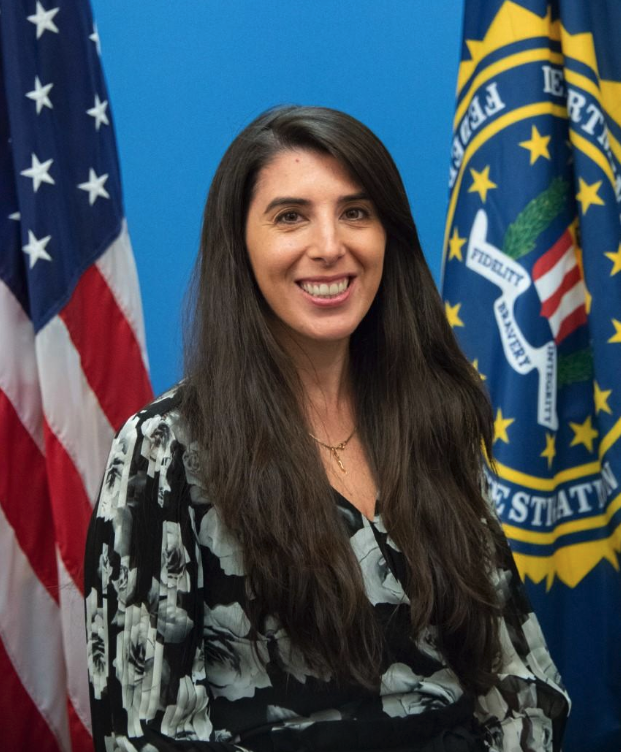
Internet safety for kids: 6 things Pittsburgh’s FBI office wants you to know
Photo above by Paul Hanaoka via Unsplash.
With school out and more time on their hands, many kids are racking up screen time minutes. According to our friends at Common Sense Media, tweens (ages 8 to 12) spend nearly six hours per day using media. Teenagers average closer to nine hours a day. This can be fun and useful: Kids can get summer enrichment through platforms such as Khan Academy and IXL, earn money through hybrid summer jobs and chat online with friends. But the dark side of the internet can’t be ignored. So we sat down with Felicia Trovato, community outreach specialist for the Pittsburgh FBI Field Office, to learn more about internet safety for kids.
A native of Pittsburgh, Trovato went to college in the D.C. area where she majored in international politics and Italian. After a nudge from a professor, she applied to the FBI and eventually found herself working at FBI Headquarters — often on cases involving cyber crime violations. After shifting to cyber security, she took an interest in doing outreach with parents and kids after seeing some of the dangers the internet presents for children.

Here are six things Trovato recommends to parents:
Setting parameters around cell/internet use: “My kids would be lost without their phones” is a sentiment Felicia has heard many times. She suggests that there should be portions of the day when the phones are off. Ultimately, parents can and should be the key decision makers around internet use in the home.
Teaching children to never give their personal information out online: Trovato does family workshops around internet safety and sometimes the conversations are eye-opening. At one session, 40% of the kids admitted they have “friended” someone they don’t actually know and shared personal information. When Trovato asked those same kids if they would give a stranger on the street their address or phone number, they all said no. “I let them know it was essentially the same thing!” Trovato says.
Warning tweens and teens about the dangers of sexting (even if talking about it is a bit uncomfortable): Trovato has seen her share of sexting cases, which can have long term implications for all parties involved. In Pennsylvania, it is illegal for a minor to share a sexually explicit image or video with another minor who’s over the age of 12 but under the age of 18. It’s also illegal to possess a sexually-explicit image or video of a minor between the ages of 12 and 18, regardless of how you acquired it. Trovato has seen kids as young as 16 charged with distribution of child pornography, a serious charge with serious consequences. “Parents should have open and honest dialogue with their children about safe internet use, and have the kind of trust with them that their children can come to them with anything,” she says.
Even if it’s awkward to talk about this, it’s incredibly valuable to establish open communication. Trovato has seen children afraid or embarrassed to speak up when something goes wrong, so they don’t let adults know they need help. It’s important that children have trusted adults to help them when the unthinkable happens.
Knowing the signs of ‘online grooming’: Unfortunately, Trovato has seen vulnerable children be lured into relationships with predators who are seeking explicit images of children or money they get from extortion. “When kids have marked changes in behavior or are spending longer than normal in the bathroom with their phones, that is sometimes a red flag,” she says. Trovato shared that predators look for clues that kids are struggling at home or might be depressed, then position themselves as someone who can help or “save” the child. Again, parents should keep the lines of communication open with their children and ask questions about who they are chatting with online.
Teaching kids about their ‘social media footprint’: There are many kids who want to be gamers, influencers and TikTok’ers, and that goal inspires them to create a really big online presence. Trovato cautions parents to monitor what their tween and teenage children are posting, because it can have big consequences. She calls this online presence a “digital resume” and has seen kids lose out on opportunities such as scholarships and jobs due to unsavory social postings. She mentioned that many private sector companies hire consultants who comb social media before extending offers to candidates. Among other things: “Kids have lost jobs posting selfies in their work uniforms,” she says.
Being a good model of internet and cell phone use: “Kids reflect what their parents do,” Travato says, so it’s really valuable when parents demonstrate good digital habits like putting the phone down during meals, not having their cell phones right next to their beds, not checking texts during family time, and sharing screen time by playing games or using drawing apps together. Healthychildren.org offers a “family media plan” that families can build together. In this plan, families can decide how media will be used, decide on screen free zones, set screen free times and more.







